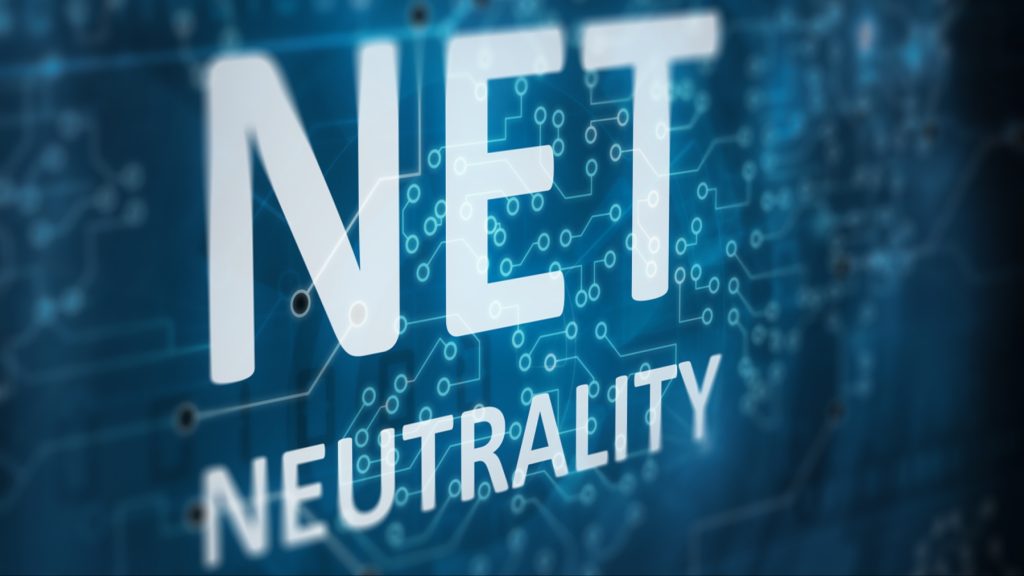
The Federal Communications Commission (FCC) voted to reinstate a divisive national telecom policy, net neutrality.
- The FCC’s decision reclassified broadband as a utility-like service, granting the agency more regulatory authority.
- ISPs oppose the regulations, warning of negative consequences and advocating for market-driven solutions.
On April 26th, the Federal Communications Commission (FCC) voted to reinstate net neutrality rules, reestablishing regulatory oversight of broadband internet providers.
Network (net) neutrality prohibits internet service providers (ISPs) from selectively speeding up, slowing down, or blocking users’ internet traffic. It forces ISPs to treat all online content and applications equally, ensuring fair and open access to online content. This national telecom policy was rescinded in 2017 under former President Donald Trump’s administration while some states decided to implement their own net neutrality protections. However, the FCC has been debating its reinstation for a while now.
FCC Chair Jessica Rosenworcel said that “every consumer deserves internet access that is fast, open, and fair.”
The FCC’s decision also reclassified broadband as a utility-like service, granting the agency more authority to regulate the industry. Traditionally, the US telecom regulator considered broadband internet more of an information service, with less regulatory control. Reclassifying it as such implies the FCC sees it provides something people rely on for basic needs. As such, it would need to keep a closer eye on it to ensure fair pricing, prevent discrimination in access, and promote investment in infrastructure.
Justin Brookman, director of technology policy at Consumer Reports, firmly believes that since it’s a telecommunications service, it should be regulated as one.
“Whether it is throttling content, junk or hidden fees, arbitrary pricing, deceptive advertising or unreliable service, broadband providers have proven over the years that without proper oversight, they will not hesitate to use their power to increase profits at the expense of consumers,” Brookman said.
Ahead of the vote, Rosenworcel assured the public that “the action [they] take here is good for consumers, public safety, national security and network investment.”
But Where Does This Leave ISPs?
Needless to say, ISPs are not particularly thrilled with the reinstation of this national telecom policy. They argue that during the period during which the regulations were repealed, they refrained from engaging in any network manipulation. However, in 2018, Version came under fire for heavily throttling the Santa Clara County Fire Department’s “unlimited” data plan during a wildfire. The throttling affected the California firefighters’ ability to battle the flames.
Jonathan Spalter, CEO of USTelecom, a trade association representing internet providers, said “Rather than pushing this harmful regulatory land grab, policymakers should keep their eyes on the real-world prize of building opportunity for everyone in a hyperconnected world.”
Speaking of the real world, net neutrality could have some financial impact on ISPs. A 2022 study published in the European Journal of Law and Economics found “empirical evidence that net neutrality regulations exert a significant and strong negative impact on fiber investments.” According to the paper, strict net neutrality regulations slow down the deployment of new fiber-based broadband connections, as they discourage investment. Limiting the providers’ ability to charge different prices for different speeds or prioritizing certain content can potentially reduce their profits from fiber investments.
Also, since broadband internet is now classified as a utility, ISPs could be facing government-mandated prices. The price regulation could squeeze profit margins if they are lower than what ISPs could charge. Low profits then reduce the incentive for upgrades. All of this will impact service quality eventually.
Inside Telecom provides you with an extensive list of content covering all aspects of the tech industry. Keep an eye on our Telecom sections to stay informed and up-to-date with our daily articles.